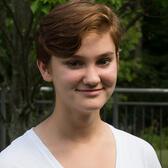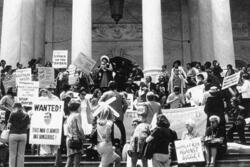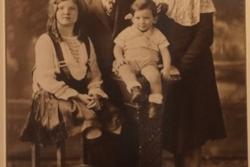In Charlottesville’s Wake, Avoiding the “Ivory Tower”
Books Stock Photo from Pexel.
I spent this summer working in the backcountry of Vermont, bereft of an internet connection. When you are without internet, the pace of the world seems to mellow and it was all the more alarming to rejoin a world that is spinning faster and faster as the tweets roll in, the volume of media coverage increases, and the topics of outrage change on a daily, if not hourly, basis.
Yet, in the middle of this ceaseless, frenzied movement, the world found time to drop what it was doing and watch, in horror, the national moment of division in Charlottesville. Intellectualizing this event feels disrespectful to the victims of Charlottesville’s violence.
Who am I to sit around talking about how I feel about such things when people are being jailed for removing Confederate statues and Neo-Nazi rallies continue at nearby malls? I’m about to go to college — I can’t spend four years only thinking about ideas when atrocities like this are making so many headlines. So here is how I will respond to the horrors of Charlottesville as a student activist. Discussion is great, activism (in this case) is better.
- Join my college’s Hillel
Though I’m not an especially observant Jew, the events in Charlottesville have prompted me to join my school’s Hillel. In a time when Jewish communities are actively threatened, there is strength and comfort in numbers, rituals, and visibility. Taking the time to be involved with Hillel means that I can make the chain of tradition a little stronger — for the sake of the current fight against extremism, certainly, but also because living a Jewish life right now is a meaningful choice to fight against the many injustices our world is facing. Rather than retreating in fear, I will be raising my voice and taking pride in my religion and culture.
The extremists in Charlottesville want to intimidate people into silence and homogeneity, and I refuse to play into their hands. They were looking to disperse communities, so I will work on making my community stronger.
- Reach out to other student activists
Those of us involved in the fight for the dignity of all people have the advantage of intersectionality, because the Neo-Nazis consider their fights against Jews, people of color, and other targets as separate entities.
Rather than retreating from associations with other targeted communities, now is the time to conference with them. When one group is targeted, others can rise around them and say, “not in our country.” The advantages to this are myriad: we demonstrate that the social change movement is unwilling to split along lines of race or religion, nullifying the age-old strategy of “divide and conquer”; additionally, this unification makes it that much harder to target one group — consider how all of Belgium donned yellow stars to protect Belgian Jews, forcing Nazi administrators to retire the policy. We can replace fear and hatred by uniting the people who believe in everyone’s basic humanity — no right or left required — to create a country that leads the world forward into tolerance, not back into ignorance and xenophobia.
- Show (the fuck) up
Though every fight for justice is not necessarily directly linked to my identity as a Jewish feminists, I can participate in all of them as an ally. One can’t get five minutes into a talk about any institution of higher learning without hearing about diversity, and the programming that schools organize to increase the social consciousness of their students. In the wake of something like Charlottesville, these programs are a lot less optional than they may seem. The privilege of attending a private, four-year institution is absolutely staggering, and I would be remiss in not getting all that I can out of it. Isn’t that the point of college, anyway? I consider myself a well-informed person, but I’m about to enter a period in my life where my main job is to learn — not just for the sake of learning itself, though that is wonderful — but in order to make the world a slightly kinder place.







